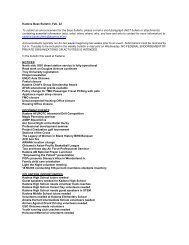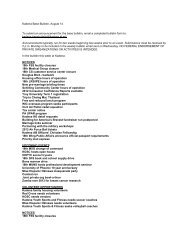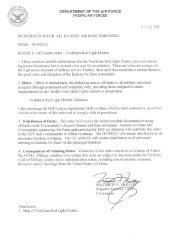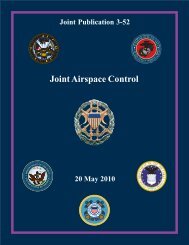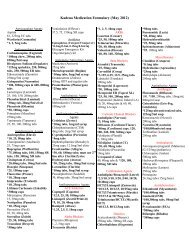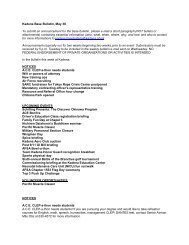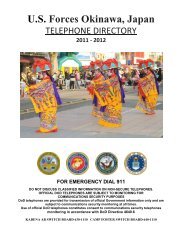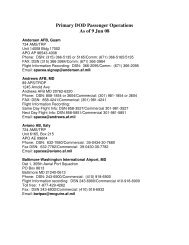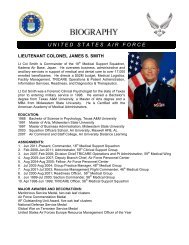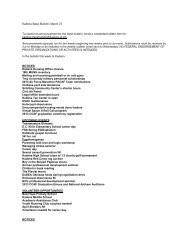U.S. Forces Okinawa, Japan - Kadena Air Base
U.S. Forces Okinawa, Japan - Kadena Air Base
U.S. Forces Okinawa, Japan - Kadena Air Base
Create successful ePaper yourself
Turn your PDF publications into a flip-book with our unique Google optimized e-Paper software.
GENERAL INFORMATION<br />
1. THE JOINT UNIFORM TELEPHONE COMMUNICATION PRECEDENCE SYSTEM<br />
a. GENERAL INSTRUCTIONS<br />
(1) The Joint Uniform Telephone Communications precedence system is directed for use by all authorized users<br />
of the voice communication facilities of the Department of Defense. Since the effectiveness of the system depends<br />
upon cooperation on the part of persons authorized to employ it, customers must be familiar with the purpose to be<br />
served by each precedence category and the types of calls which may be assigned to the respective precedence.<br />
Each authorized user should consider whether a call requires special precedence and exercise care not to request<br />
or utilize one higher than the circumstances require.<br />
(2) The Joint Uniform Telephone Communications precedence system does not make provisions for the conduct<br />
of test and exercise calls. Those activities or individuals authorized or required to conduct such tests and exercises<br />
will employ precedence consistent with the nature of the test or exercise, and upon contacting the called party<br />
will identify the precedence of the call.<br />
(3) The precedence designators listed below are directed for joint use and specify the relative order in which<br />
telephone calls should be handled based on the importance (content) of the call.<br />
b. PRECEDENCE DESIGNATOR<br />
(1) IMMEDIATE: Has precedence over any other telephone call of lower precedence. Pre-empts lower precedence<br />
calls. The IMMEDIATE precedence is reserved generally for telephone calls pertaining to:<br />
(a) Situations which gravely affect the security of national and allied forces.<br />
(b) Reconstitution of forces in a post-attack period.<br />
(c) Intelligence essential to national security.<br />
(d) Conduct of diplomatic negotiations to reduce or limit the threat of war.<br />
(e) Implementation of Federal Governmental actions essential to national survival.<br />
(f) Civil defense actions concerning direction of our population and their survival.<br />
(g) Vital information having an immediate effect on aircraft, spacecraft, or missile operations.<br />
(2) PRIORITY: Has precedence over any other telephone calls of lower precedence. Pre-empts lower precedence<br />
calls. Priority precedence is reserved generally for telephone calls requiring expeditious action by called<br />
parties and/or furnishing essential information for the conduct of government operations.<br />
(3) ROUTINE: Has no precedence over any other call, and is handled sequentially as placed by the calling party.<br />
Does not pre-empt any call. Routine designation applies to those official government communications that<br />
require rapid transmission by telephone means, but do require preferential handling.<br />
29



